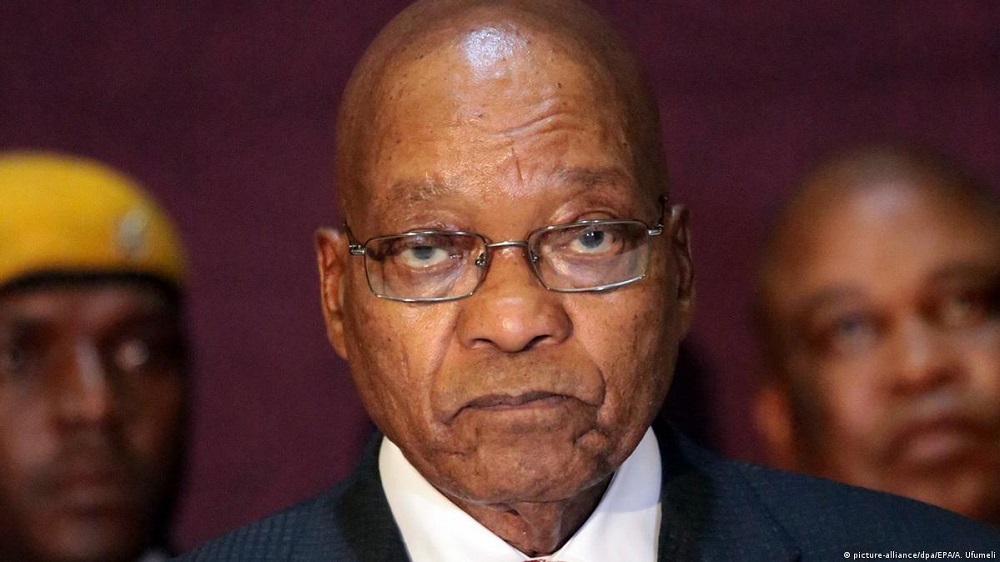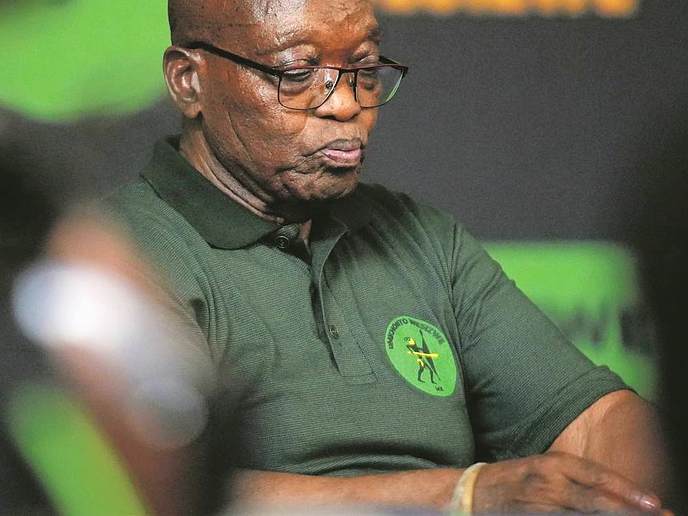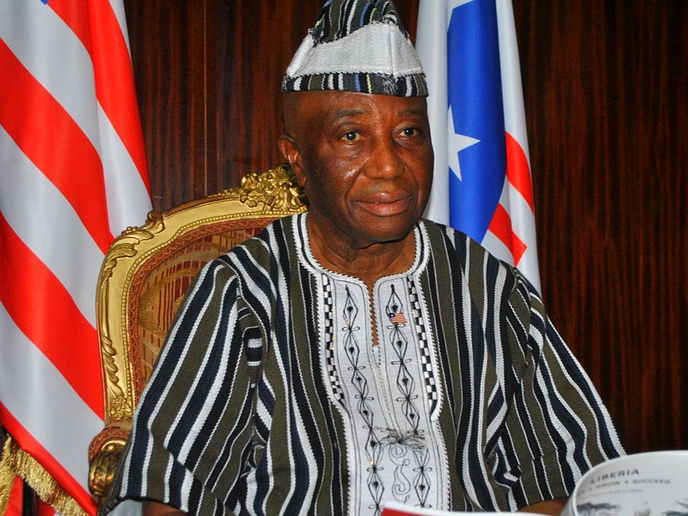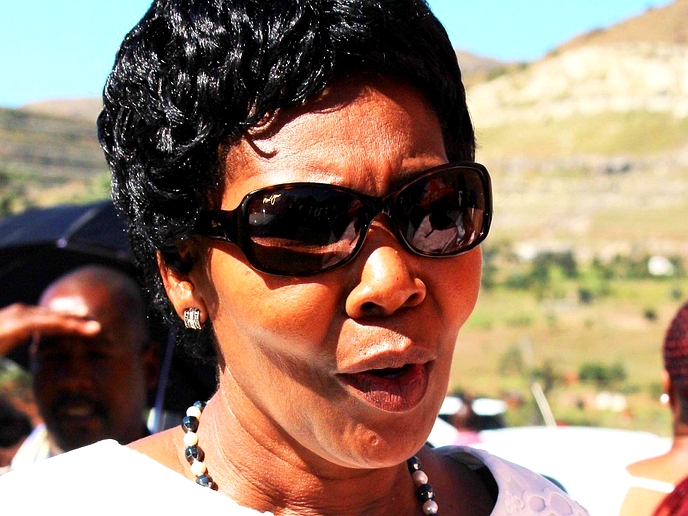JOHANNESBURG - It is not uncommon in underworld circles to hear of someone who was poisoned, someone who thinks they were poisoned, or someone who thinks someone else is pretending to have been poisoned.
africa
Jan. 16, 2023
DAILY MAVERICK
6 min read
Threat of poisoning saturates state and underworld in SA

Eskom CEO, André de Ruyter
Story highlights
There is the tale of a crime suspect who was wounded in a shooting decades ago and then, in another apparent attempt to kill them, was handed a drink that, after being ingested, resulted in them drastically losing weight. The suspect presumed they had been poisoned.
Then there is a story of how another underworld-linked figure received a cake from folks they knew and subsequently lost a lot of weight after eating it.
The recipient of the cake suspected the confection had been laced with a toxin.
And there’s the tale of a dodgy information peddler who claimed to have been poisoned in an incident that led to medical issues — but others brushed this story aside and said the peddler had simply suffered the effects of an extreme alcohol binge — a self-poisoning, in a sense.
These stories, whether fact or fiction, snake through organised crime circles and sometimes surface on the sidelines of interviews.
During such interviews, warnings along the lines of, “you mustn’t drink anything handed to you”, are sometimes muttered.
In the cutthroat world of organised crime, players clearly fear being taken out by methods other than bullets and blades.
These fears — or in some cases, the concocting of such impressions — cut into the state.
Carine Marks, director of the Tygerberg Poisons Information Centre, without referring to a specific case or incident, told Daily Maverick that poisonings could be classified into different types.
Examples included accidental poisonings, which could involve ingesting contaminated food or being bitten by a snake; cases that involved intentional self-harm, and others that were deemed therapeutic errors involving incorrectly prescribed medication.
Marks said that “malicious poisonings” involving crime are not all that common, but they do occur.
Imraan Coovadia, author of the book The poisoner: On South Africa’s Toxic Past, speaking more about the political realm, told Daily Maverick it was often tough trying to decipher which poisoning stories were true.
“There is a very strong folk tradition of fearing being poisoned in your community of sub-Saharan Africa,” he said.
Such fears seemed to be intensified within Zimbabwe’s ruling Zanu-PF (claims were previously made that members, including Robert Mugabe, were poisoned) and South Africa’s ANC.
Coovadia said while there were “very few proven and scientifically verified” cases of politicians being poisoned, he felt that cases of poisoning were “significantly more elevated” in South Africa.
This was due to reasons including the ease with which different types of poison could be accessed, for example, those used on animals.
Rumours linked to poisoning proved “the most sensational”, and ideas attached to such stories included having to keep a close eye on backstabbing “friends” who could turn out to be poisoners.
“It kind of turns closeness [between people] inside out,” Coovadia said.
He added that poisoning claims could create a “deep well of distrust in a society” to the benefit of certain people.
In trying to figure out the authenticity of a poisoning claim, Coovadia said, one needed to look at the credibility of the person who was apparently poisoned.
It emerged last week that Eskom CEO Andre de Ruyter, who recently resigned, may have been poisoned with cyanide in December.
De Ruyter has said that sabotage was exacerbating power cuts in South Africa.
In relation to the possible poisoning, Chris Yelland of EE Business Intelligence reported in an article published by Daily Maverick:
“A trusted source external to Eskom indicated to EE Business Intelligence that after drinking a cup of coffee in his office at Eskom Megawatt Park in Sunninghill, De Ruyter became weak, dizzy, and confused, shaking uncontrollably and vomiting copiously. He subsequently collapsed, unable to walk.
“He was rushed to his doctor’s rooms by his security detail, where his condition was diagnosed as cyanide poisoning and treated accordingly. The tests are taken subsequently confirmed massively elevated levels of cyanide in his body.”
De Ruyter said he reported the matter to the South African Police Service (SAPS).
The service, though, which is deeply fragmented with some officers accusing others of crimes, is another arena into which poisoning fears have seeped.
It is understood some SAPS members fear that food or drink offered to them could be intentionally contaminated to harm or kill them and prevent them from outing corrupt colleagues or testifying in court cases.
In 2021, Daily Maverick reported on the curious case of Deputy National Police Commissioner of Crime Detection, Sindile Mfazi.
He died in July of that year.
At the time, the SAPS issued a statement saying he died “due to COVID-related complications”.
But claims later emerged in police circles that Mfazi’s body had been exhumed about a week after he died because of suspicions that he had been poisoned.
The national police spokesperson at the time had confirmed the cause of his death was under investigation.
News24 later reported that the matter morphed into a murder case and “Mfazi was poisoned with casting resin, a poisonous and hazardous chemical substance used to manufacture and produce moulds, plastic toys, and figurines”.
South Africa’s political arena is also not immune to stories of poisoning.
In 2015,the then-President Jacob Zuma’s now-estranged wife, Nompumelelo Ntuli-Zuma, also known as MaNtuli, was banned from his Nkandla home after accusations of having been involved in a plot to poison him.

Former SA President Jacob Zuma
Enjoy our daily newsletter from today
Access exclusive newsletters, along with previews of new media releases.
Two years later, Zuma reportedly told supporters in his home province of KwaZulu-Natal: “I was poisoned and almost died just because South Africa joined BRICS (Brazil, Russia, India, and China grouping) under my leadership.”
In 2019, the National Prosecuting Authority announced it would not prosecute anyone over the poisoning claims because of an absence of evidence.
Ntuli-Zuma also considered suing the Hawks and National Prosecuting Authority over the saga.
Purported poisoning stories extend further into political ranks.
Deputy President David Mabuza has previously claimed he slipped something toxic in August 2015 when he was premier of Mpumalanga.
He told the Sowetan that the incident happened during his birthday celebrations.
“There were snacks on the table. I had tea and later had lunch. After eating, my energy levels were down. My body was extra hot. Since that day my health deteriorated until I was admitted at Nelspruit Mediclinic,” Mabuza was quoted as saying.
He said he was moved to another local hospital at his request, but nothing was detected.
Mabuza said that a hospital in Pretoria had found “a foreign bacteria” in his body. His weight reportedly dropped from 78kg to 44kg.
There is a State Capture element to the Mabuza poisoning saga — the Guptas once effectively paid for Mabuza to fly to Russia, a country tightly entwined in its own set of poisoning claims, for medical treatment.
Suspicions of poisoning recently cropped up in a controversial court case playing out in the Western Cape over high-level allegations that gangsters have infiltrated the police service.
An unprecedented judgment in this matter, delivered in October against gangster accused Elcardo Adams and Alfonso Cloete, detailed the claims.
It said a poisoning plot was allegedly concocted after Adams realised another accused in the matter had made a confession that was captured on video.
According to the judgment, the plot was that: “(Adams) would have injected [the other] accused… with poison at the High Court when he was next to him.” Adams denied this.
The intention to poison someone, obtaining and administering a poison for underhanded reasons, lying about being poisoned or about a poisoning, and, of course, intentionally poisoning someone, point to duplicity and hint at corruption — two “poisons” that bind the state to organised crime. DM
Tailored for you






